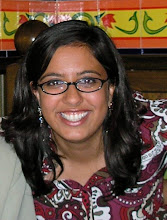I know deadline pressure means some not-so-strong pieces have to run, but I wonder if anyone listened to this news item before airing it on the local NPR affiliate station WAMU this morning.
This follow-up to the apparent drowning of a 5-year-old child last Friday in a local pool where five lifeguards were on watch raises a legitimate question: how adept are teenage lifeguards.
The title, "Pool Safety Experts Weary of Teen Lifeguards," seems misleading considering the only people quoted are a lawyer and an anonymous pool attendee (more on that in a second).
The attorney calls pool drownings "almost an epidemic," but nowhere in the report does reporter Mana Rabiee include any numbers to back that up.
The part that really bothered me was Rabiee's awarding anonymity to her community member voice, a woman who regularly attends the pool and has expressed concern over the lifeguards' youth. First, Rabiee doesn't say why the woman, who makes a useless comment about how lifeguards appear to be high school kids, didn't want to be identified. Then, the kicker: the mystery pool-goer adds that she isn't "personally affected by it because I'm a good swimmer, but if I were a parent I might be concerned."
Is it too much to ask for the "man on the street" reaction to be a bit more applicable? It's hard to believe there wasn't one other person around who would a) speak on the record and b) say something at least mildly relevant. Had an editor shaved off that woman's 17 seconds of drivel, I would have wasted only a minute of my time listening to this report.




